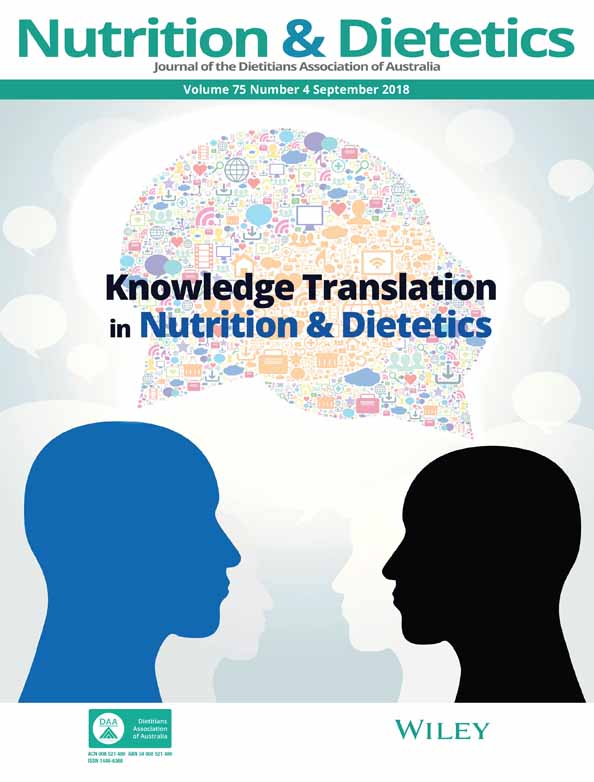Process of knowledge translation within routine clinical care: Implementing best practice in weight management
Abstract
Aim
Failure to translate research into practice is common. The present study implemented an evidence-based model of care to address identified evidence-practice gaps in our department's weight management service.
Methods
Implementation science frameworks were used to identify barriers to best practice and determine appropriate strategies to overcome them. No practice change occurred pre-implementation. The new model of care incorporated evidence-based interventions into a flowchart, supported by written resources, and integrated routine data collection into clinic processes. Alignment with a statewide telephone counselling program enhanced service capacity. Data were collected for adult patients whose primary intervention was weight management at a South-East Queensland hospital and included service attendance metrics, anthropometry, diet quality, and interventions delivered, and were compared with guidelines. Change in outcomes was calculated at 3 months after initial appointments.
Results
Pre-implementation, 69.2% (n = 91) of patients referred were seen by a dietitian. During the new model of care (n = 60), over half (63.3%) were referred to telephone counselling. The remainder were triaged according to the flowchart with 100% attendance. Guideline adherence for reviews significantly increased over time (4.4%–50%, P < 0.001). Follow-up data were available for 31.3% and 54.5% of the pre-implementation and new model of care patients, respectively. No significant differences were observed between outcomes.
Conclusions
The present study demonstrated successful implementation of weight management guidelines within routine clinical care. Following a systematic assessment of existing evidence-practice gaps resulted in a pragmatic evidence-based model of care that could be delivered within service capacity.
Conflict of interest
The authors have no conflicts of interest to declare.




